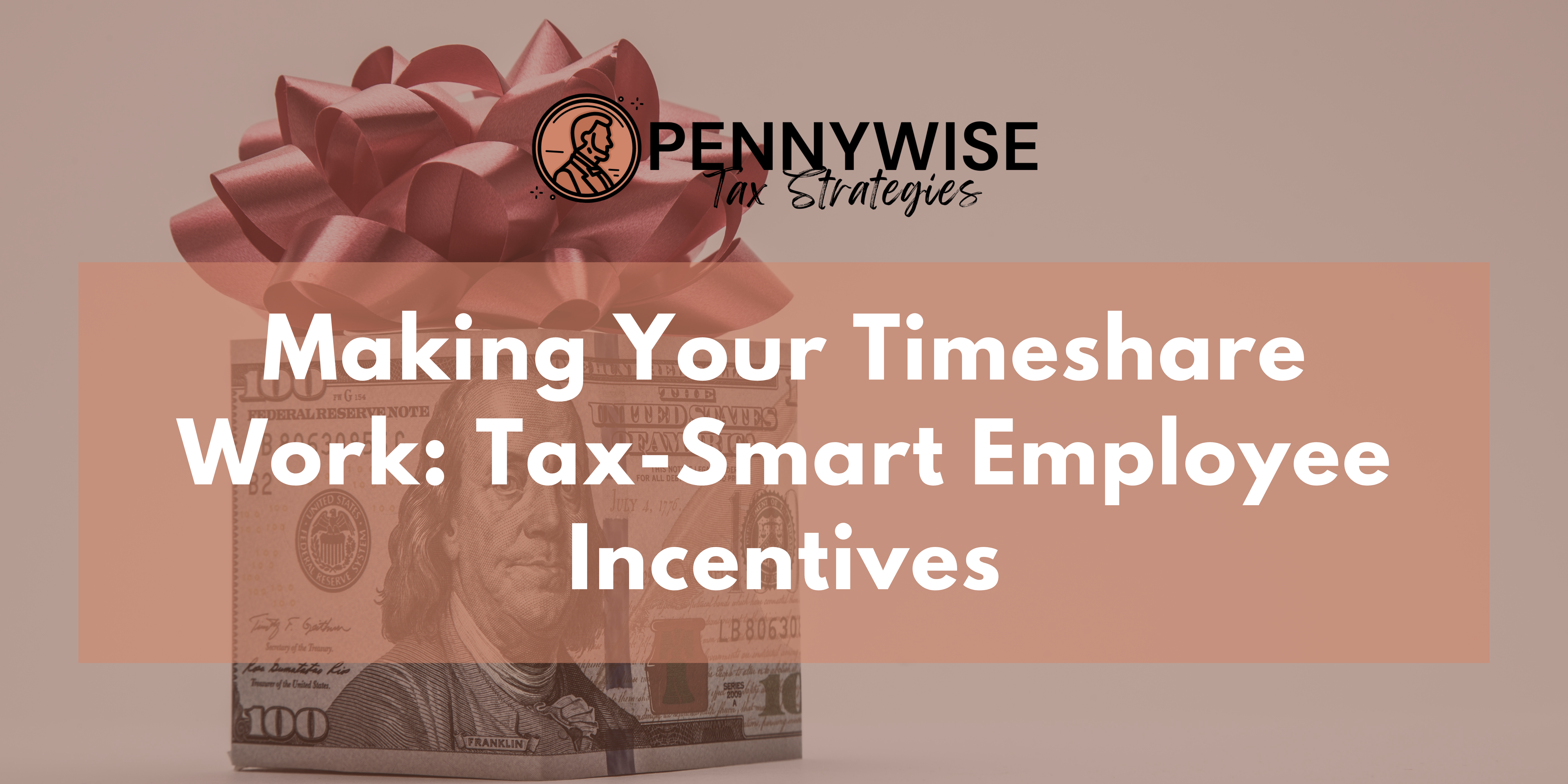
Do you have a timeshare that you consider offering to your employees as an incentive for achieving specific revenue goals? Are you interested in how you can create a business tax-deductible treatment for the timeshare.
As a general rule, business related entertainment expenses including deductions related to entertainment facilities are not deductible (Internal Revenue Code section 274). However, an exception exists for expenses for recreational or social activities for the benefit of employees who are not highly compensated. Below, I outline two allowable potential methods to help you achieve the desired tax deductions for your timeshare.
Method 1: Deductible Entertainment Facility
One option is to qualify your timeshare as a tax-deductible employee entertainment facility. This approach provides a significant tax-free advantage to your employees, as using such a facility is a tax-free fringe benefit. Here's how.
Primary use by employees generally. Your timeshare must primarily benefit your employees generally. The "employees generally" group excludes 10-percent-or-more owners and highly compensated employees (those earning over $155,000 in 2024).
Use ratio. The "employees generally" group must use the timeshare more frequently than the owners and highly compensated employees.
Non-discriminatory use. The timeshare should be made available to all employees generally on a first-come, first-served basis. Avoid any form of discrimination in access to the timeshare.
Proof of use. Maintain a guest log or similar documentation to record employee use.
Method 2: Timeshare as Compensation
Alternatively, you can treat the use of the timeshare as "compensation" to your employees. This method allows more flexibility, including the ability to discriminate among employees if desired. Here's how it works.
Taxable compensation. You include the fair market value of the timeshare stay (and any additional perks) in the employee's W-2 taxable income.
Deductible costs. You may deduct the costs incurred in providing the benefit, such as depreciation, Section 179 expensing for furniture and appliances, lease payments (if applicable), and operating expenses.
Business Tax Deduction
Regardless of the method chosen, you need to follow specific steps to ensure you have the deduction correct on your business tax return.
Proprietorship (Form 1040, Schedule C). If you own the timeshare personally, deduct timeshare expenses directly on Schedule C.
Corporation. If you operate as a corporation, submit an expense report for reimbursement to ensure that the corporation receives the deduction and that you avoid taxable income.
This fringe benefit is much more complex that you would think, isn't it? Give us a call if you want help with the strategy or documentation around using your timeshare or vacation home as an employee benefit.
